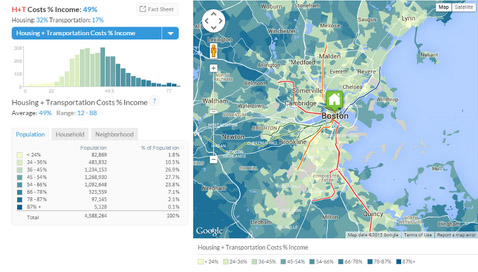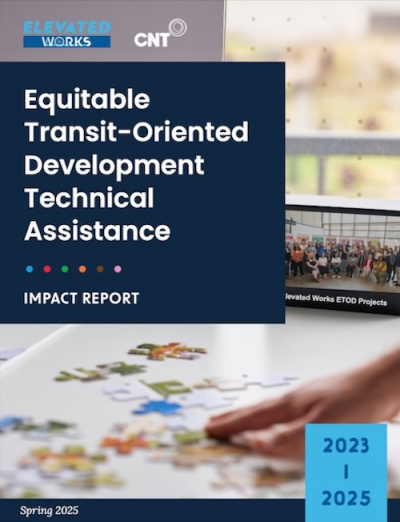Is there such thing as too much parking? For many Americans, the answer may be a quick “no.” But it’s actually not that simple.
Overbuilt parking may not sound like much of a problem, but the average parking space can cost $20,000 to $80,000 to build. Since most cities dictate the minimum number of spaces that must be built at residential buildings (even in location-efficient places where people drive less and walk, bike, or take transit more) adding parking spaces adds to housing costs. To help planners and developers in the San Francisco Bay Area quantify parking usage and the costs of unused parking spaces, CNT was contracted by the Oakland-based nonprofit TransFormto build the GreenTRIP Parking Database.
The database contains parking and affordability data for over 65 residential buildings in the Bay Area. Users can filter the data by location, development type, affordability (calculated by percentage of units below market rate), nearby transit, parking availability, and more. The tool then creates printable comparison reports for buildings of interest, complete with the total number of unused parking spots and the construction costs of these spaces.
To collect the data, TransForm’s researchers surveyed property managers and developers, and counted the number of parking spaces left vacant in the middle of the night. For the 68 buildings currently in the database, the average percentage of vacant spaces per building was 31%. For some buildings, however, it was as high as 69%. The construction of all of these unused spaces cost $139,352,200, an expense that is often passed on in the form of higher rents – even for tenants who don’t own cars.
The GreenTRIP Parking Database is part of CNT’s growing emphasis on helping cities and developers rethink parking. Last year, we built the Right Size Parking Calculator for King County, Washington, which also calculates the number and cost of unused residential parking spaces. Since its launch, the calculator has been used by county and municipal decision-makers to direct policy and development initiatives. CNT continues to help cities and regions around the country make smarter, data-driven decisions about how much parking they really need.





 Strengthening Transit Through Community Partnerships
Strengthening Transit Through Community Partnerships